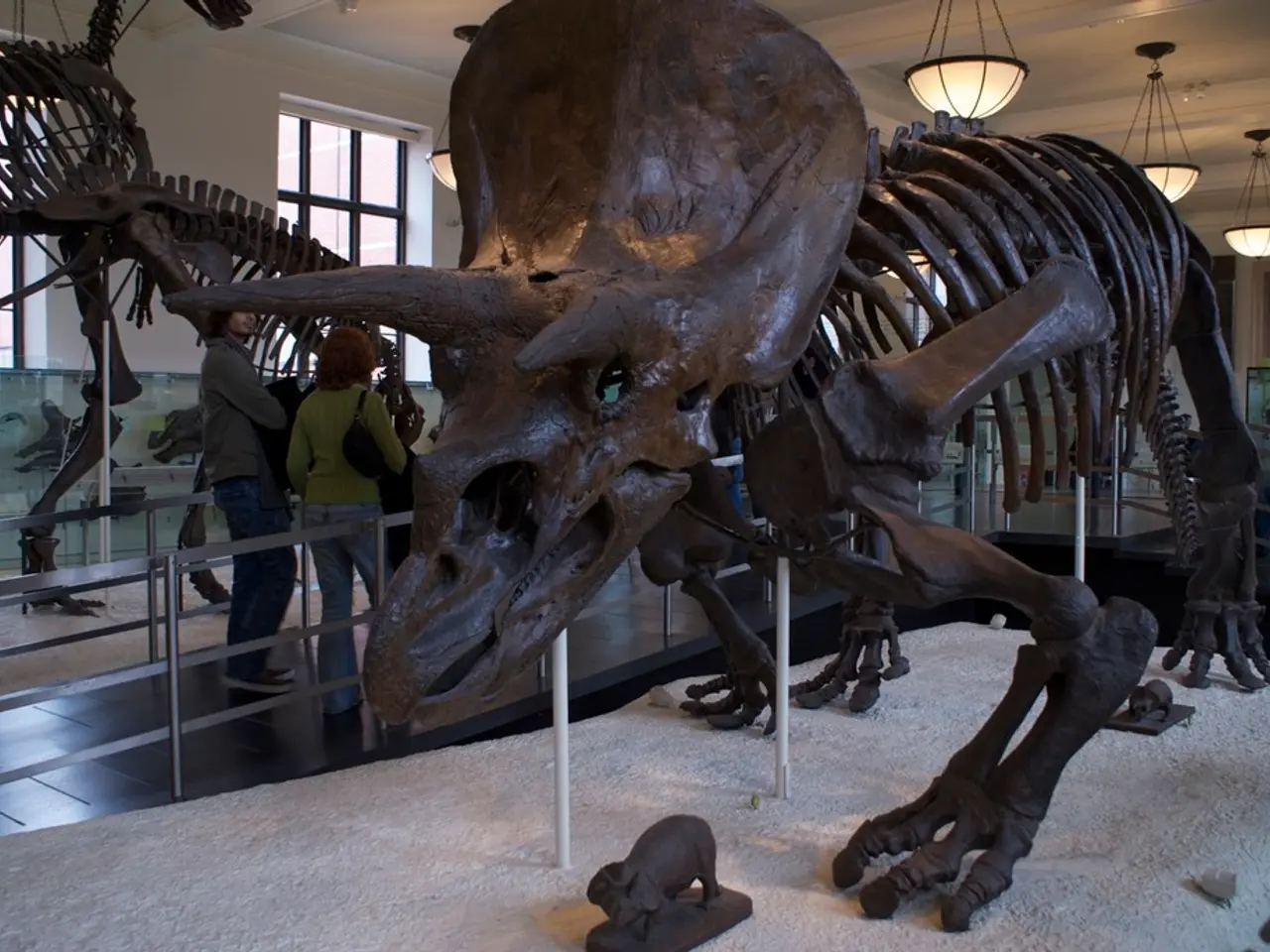Museum Eliminates Trump's Impeachment Reference: Tangle of Queries Emerges
In a move that has sparked controversy and debate, the Smithsonian National Museum of American History temporarily removed references to President Donald Trump's two impeachments from an exhibit. This decision, attributed to a content review partly linked to pressure from the White House, has led to accusations of "whitewashing history" by critics and a response from the White House accusing the museum of promoting divisive ideology.
The Smithsonian, in response, confirmed that the change was temporary and part of updating "legacy content," and assured that future exhibits would include all impeachments, reinstating the references to Trump. This episode illustrates the complex dynamic where political leaders—through direct or indirect pressure—can impact the presentation of historical events in public institutions.
Museums, which aim to educate and document history, can face challenges balancing historical accuracy, political sensitivities, and evolving public narratives. The Smithsonian's case reflects how political influence can lead to revisions or temporary removals of historical content, sparking public debate about preserving an objective historical record versus presenting narratives aligned with current political climates.
The controversy is part of a broader effort by the Trump administration to influence and shape how history is depicted at museums, national parks, and schools. Timothy Naftali, former director of the Richard M. Nixon Presidential Library and Museum, is concerned and disappointed about the Smithsonian's decision to remove the Trump panel from the exhibition about the American presidency.
Julian E. Zelizer, a professor of history and public affairs at Princeton University, stated that Trump is pushing a specific narrative of the United States and trying to influence how Americans learn about his own role in history. This approach to history and his role in it is more intense compared to previous presidents, encouraging an atmosphere where institutions may feel compelled to choose between him and the truth.
Robin Wagner-Pacifici, professor emerita of sociology at the New School for Social Research, states that the importance of history and one's role in it for people in authority cannot be underestimated. She suggests that the legitimacy of those in power needs to be reconstituted constantly and they cannot rest on their laurels.
The Smithsonian's decision has also received support from some quarters. Wagner-Pacifici believes that museum directors should have red lines and considers removing the Trump panel as one of them.
Meanwhile, in other news, the Seafair Weekend Festival 2025 is expected to entertain crowds with attractions like "Can You Ride It?" Death Cab for Cutie performed in Seattle, making themselves at home during the 'Plans' shows. Paul Simon also graced the stage at Benaroya Hall, enchanting the audience with new music and old favorites.
A Southwest city turned itself into an essential art outpost, and Gary Busey pleaded guilty to a sex crime charge tied to a horror movie event. Jason Stanley, an expert on authoritarianism, has made his views about the Trump administration clear, recently leaving Yale University to join the University of Toronto, citing concerns over the U.S. political situation.
As the nation continues to grapple with these issues, the Smithsonian's decision serves as a reminder of the delicate balance between historical accuracy and political influence, and the potential impact of political leaders on how history is depicted and understood.
- The controversial removal of references to President Donald Trump's impeachments from a Smithsonian exhibit raises concerns about the influence of politics on the presentation of historical events in public institutions.
- The revisions or temporary removals of historical content in museums can spark public debate about the preservation of an objective historical record versus presenting narratives aligned with current political climates.
- The Smithsonian's decision to temporarily remove the Trump panel from the American presidency exhibition sparked accusations of "whitewashing history," while some support the decision as a red line for museum directors.
- The Trump administration's efforts to influence how history is depicted at museums, national parks, and schools have been a source of controversy and concern for historians and educators.
- The Trump administration's approach to history and the role they play in it encourages an atmosphere where institutions may feel compelled to choose between the administration and the truth.
- The delicate balance between historical accuracy and political influence is further illustrated in the broader cultural landscape, where events such as the Seafair Weekend Festival, Gary Busey's guilty plea, and Jason Stanley's departure from Yale University, contribute to the ongoing national conversation about the impact of politics on our understanding of history.








